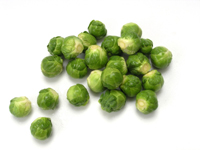- Home
- Our story
- Nutrition Quickies
- Products
- Ingredients
- Articles
- Success Stories
- Contact Us
- Timeless Radiance
- JayLab Pro Prosta-7
- BloodFlow Guardian
- VG-6
- Ultimate Sleep Solution
- Fermented Turmeric
- Collagen Complex
- Ultra-Cleanse Detox
- Krill oil
- Probiotics
- Advanced Joint Support
- Gluco Guardian
- Multi-vitamin (Active Core Complex)
- Renewal for men (T20)
- Protein powder
- Combo-packs
- Login
Are You Eating Enough Fruits And Vegetables Every Day?
The U.S. Department of Agriculture, the World Health Organization, the American Heart Association, the American Cancer Society, and the National Center for Chronic Disease Prevention and Health Promotion agree – you should eat more fruits and vegetables.
Up to 10 total servings a day!
That’s a lot of food.
And besides having to eat all that food, maybe you don’t love the taste of fruits, vegetables or greens. Or you don’t have time to shop 2-3 times a week to buy fresh fruits, vegetables and greens? And don’t get me started about preparing the food (washing, chopping, peeling, dicing, mincing, steaming, grilling, microwaving, broiling, and baking can be a real pain in the rear!)
If You Can’t Beat Mother Nature, Join Her!
You shouldn’t mess with Mother Nature. Why try and fool the body with synthetic vitamin pills when you can easily provide your body with convenient concentrated nutrients from actual whole foods grown out of the earth? Not nutrients engineered in a lab.
You see synthetic alternatives are known as isolates and your body will only absorb a small percentage of these isolates in the form of vitamins and minerals. Your body absorbs natural vitamins and minerals very well so provide it with the natural form since it knows what to do with that form.
That’s why we created Active Core Complex
The 25 Vegetables, Greens and Fruits nutrient rich concentrates found in Active Core Complex, which are derived from Nature’s own whole foods, are more easily absorbed and used by your body than a synthetic blend.
PLUS, it contains all seven essential nutrient classes! But more on that later…
First, just take a look at the 25 Whole Food concentrates from some of Nature’s most powerful Vegetables, Fruits and Greens found in ultra-convenient Active Core Complex caplets.
Broccoli - Folate, vitamin C, and several carotenoids including beta-carotene, lutein, and zeaxanthin and glucosinolates
Cabbage - Vitamin C, folate and glucosinolates
Carrot - Several carotenoids including beta-carotene, along with vitamin E
Kale - Vitamin C, folate, magnesium, and several carotenoids including beta carotene, lutein and zeaxanthin
Parsley - Vitamin C, folate, several carotenoids and flavonols
Spinach - Folate, vitamin C, vitamin E, several carotenoids, Iron and Calcium
Papaya - Vitamin C, potassium, and several carotenoids including beta-carotene and beta-cryptoxanthin
Tomato - Vitamin C, polyphenols, and several carotenoids including lycopene
Barley Grass - Vitamin B1, B12, calcium, Vitamin C
Wheat Grass - Vitamin A, Vitamin E, magnesium, calcium, fiber
Hyrdrilla Verticillata - Calcium, Magnesium, Manganese, Potassium, Zinc, Copper, Vitamins B1, B2, B5, B6, B12, Vitamin C and Vitamin E
Alfalfa - Calcium, Carotene, Chlorophyll, and Vitamin K
Artichoke - Magnesium, Chromium, Manganese, Potassium, Phosphorus, Iron and Calcium
Brussel Sprouts - Vitamin K, Vitamin C, Folate, Manganese, fiber, Potassium, Omega 3 fatty acids, Vitamin E, Calcium
Cauliflower - Vitamin C, Vitamin K, Folate, fiber Kale
Onion - Chromium, Vitamin C, and numerous flavonoids, fiber
Collard Greens - Vitamin A, Vitamin C, Vitamin E, Managanese, Calcium
Apricot - Vitamin A, Vitamin C, Fiber
Avocado - Vitamin K, Folate, Potassium, Vitamin B6, Vitamin C
Green Bell Pepper - Vitamin C, Vitamin A, Vitamin B6
Grapefruit - Vitamin C, fiber, Vitamin A, potassium, folate
Kiwi - Vitamin C, fiber, Copper, Potassium, Magnesium
Prune - Fiber, Copper, Vitamin A, Potassium
Strawberry - Vitamin C, Manganese, Fiber, Potassium, Folate
Here are just a few of the benefits from some of these natural food sources.
Barley Grass: Contains 30 times more Vitamin B1 and 11 times the amount of calcium than there is in cow’s milk, 6.5 times as much carotene and nearly 5 times the iron content in spinach. Barley grass has close to seven times the vitamin C that is in oranges. Barley has one of the highest natural levels of the enzyme SOD (superoxide dismutase), which is a powerful antioxidant that protects the cells against toxic free radicals.
Wheat grass: Wheat grass contains over eighty different minerals and is high in fiber. It has as much magnesium as broccoli, beets and carrots. Magnesium is vital for muscle contraction and bowel health.
Brussel Sprouts: Plant phytonutrients found in Brussel Sprouts enhances the activity of the body’s natural defense systems to protect against disease, including cancer. Sulforaphane one of the glucosinolate phytonutrients found in Brussels sprouts and other cruciferous vegetables, boosts the body’s detoxification enzymes, thus helping to clear potentially carcinogenic substances more quickly.

Other benefits from the 25+ whole foods is support for your brain and immune systems, healthier urinary tract system, and healthy cholesterol levels
Now you should be getting plenty of these wonderful fruits and vegetables into your diet every day, but realistically it is extremely hard if not impossible to consume such a wide variety to benefit from all their individual properties each and every day.
This is why you should consume them the best you can and more importantly consume a whole food based multi-vitamin to make sure you are not missing out on any of these powerful nutrients and benefits.
It is what I call completing your nutritional foundation. You are building the base of your nutritional foundation as strong as possible so your body can defend anything that comes to try and topple you over.
Make sure you grab your bottle today of Active Core Complex and begin strengthening your nutritional foundation.
